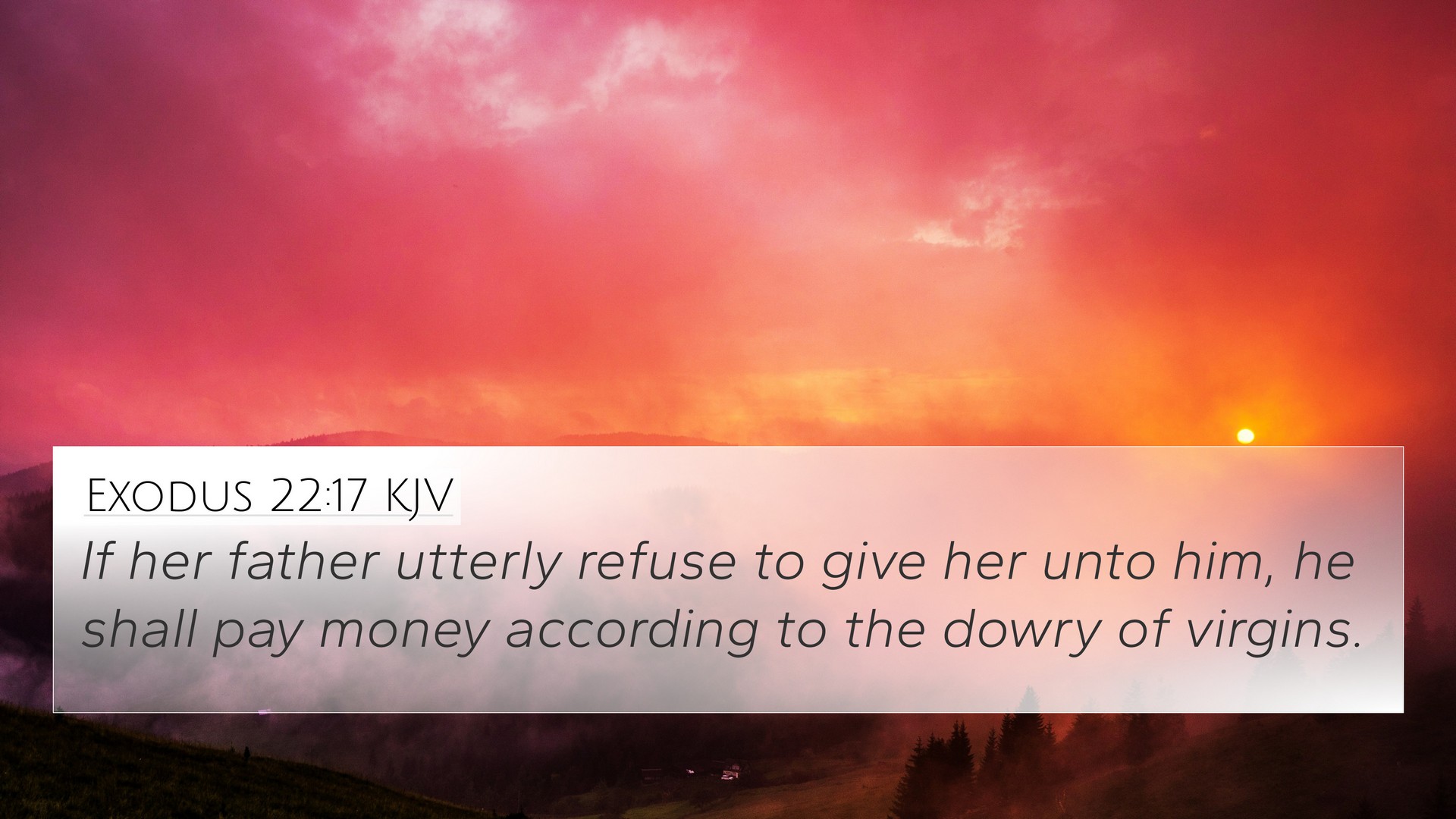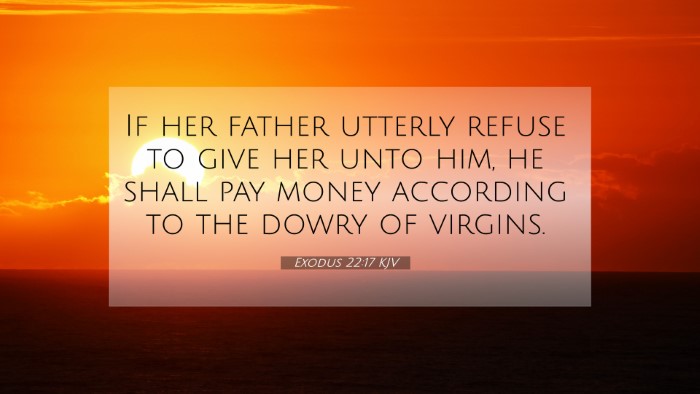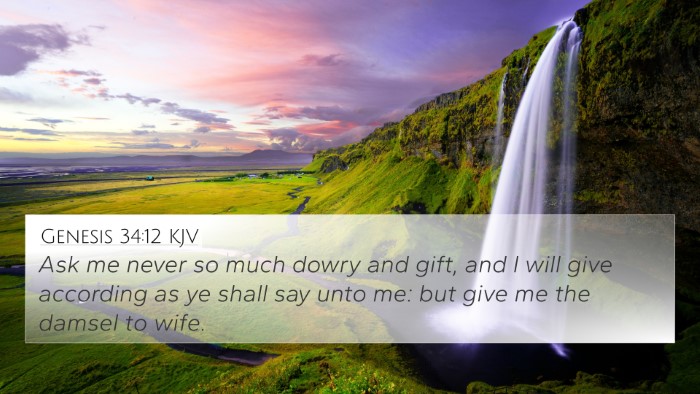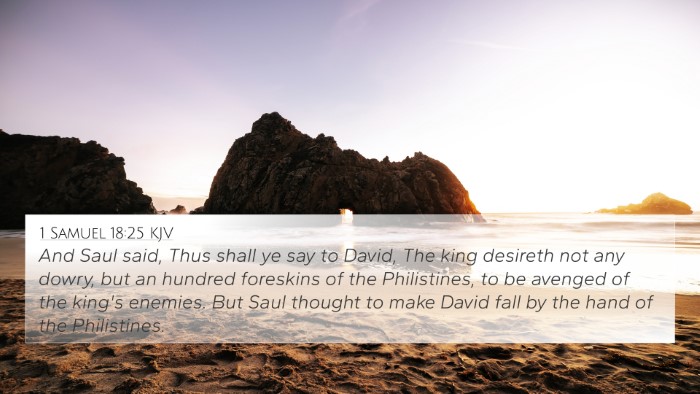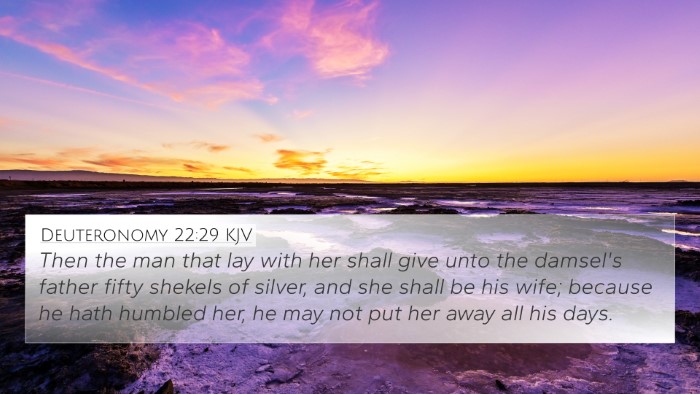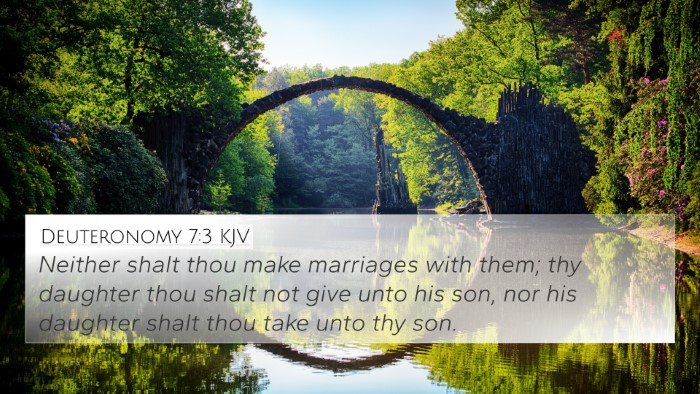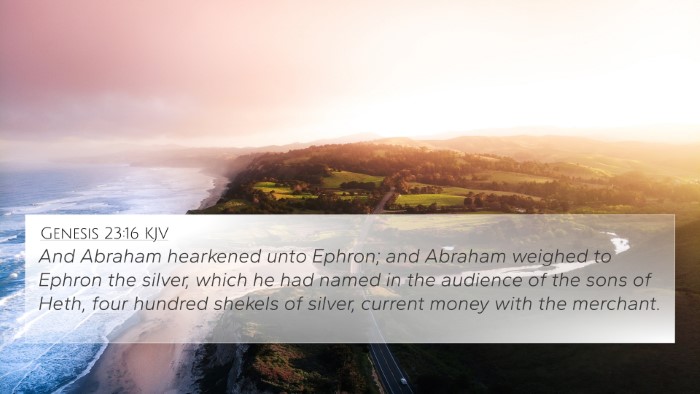Understanding Exodus 22:17
Exodus 22:17 states: "If her father utterly refuse to give her unto him, he shall pay money according to the dowry of virgins." This verse outlines the consequences and expectations surrounding the betrothal of a daughter, particularly in ancient Israelite society.
General Meaning
The passage emphasizes the rights of a father in the marriage arrangement of his daughter. It reflects the customs and societal norms of the time, wherein fathers had significant authority regarding their daughters’ marital decisions.
Key Insights from Commentaries
- Matthew Henry: Henry emphasizes the importance of the father’s consent in marriage arrangements, highlighting the serious nature of such commitments. He notes that if a father refuses to give his daughter to a suitor, it suggests a potential relationship that is either not appropriate or not conducive to the family’s honor.
- Albert Barnes: Barnes reflects on the financial aspect, noting that the dowry represents a form of compensation. This verse underscores the expectation that the suitor must provide a financial equivalent should the marriage not proceed, thus indicating the weight of the commitment involved.
- Adam Clarke: Clarke elaborates on the societal implications of this law, pointing out that the commandment protects the family and establishes boundaries to ensure that marriage is entered into with respect and due consideration for all parties involved.
Bible Verse Cross-References
To gain a deeper understanding of Exodus 22:17, it is useful to consider these related verses:
- Genesis 24:53: This verse discusses the giving of gifts upon the engagement of a daughter, reflecting the tradition of dowries.
- Deuteronomy 22:28-29: Provides further instructions regarding a man who seduces a virgin, paralleling themes of responsibility and marriage under similar circumstances.
- 1 Corinthians 7:36: In discussing marriage, Paul mentions the importance of giving daughters in marriage, related to the principles outlined in Exodus 22.
- Proverbs 31:10: Highlights the value of a virtuous woman, reflecting the importance of marital decisions and their long-term impacts.
- Matthew 19:5-6: Jesus quotes Genesis regarding marriage, reaffirming the sacredness of the marital bond as reflected in the laws of Exodus.
- 1 Timothy 5:14: Encourages younger widows to marry, showing a continuity of the significance of marriage in the church community.
- Ruth 4:10: Illustrates the customs related to redemption and marriage in Israel, linking back to the responsibilities highlighted in Exodus 22:17.
Thematic Connections
This verse invites exploration into various thematic Bible verse connections regarding marriage, family authority, and social responsibilities within the biblical context. The framework of Israelite law illustrates the balance between personal desires and familial obligations.
Conclusion
The intricate relationships, laws, and traditions surrounding marriage in biblical times reveal profound insights into societal values that continue to resonate today. Through cross-referencing Biblical texts, one can glean deeper meanings and applications relevant to contemporary discussions about marriage, family dynamics, and personal responsibility.
